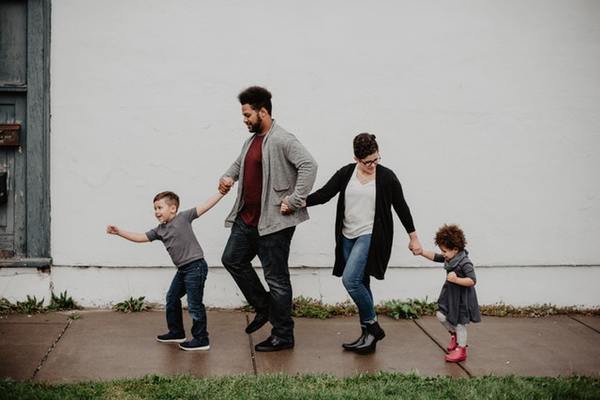Couples and Kids

The longitudinal study investigated the ways couples handle everyday problems and how their interactions affect school-aged children. Data collection began in January 1999 until October 2003, and approximately 300 two-parent families (mothers, fathers, and one child) participated.
Research Overview
A goal of this study was to identify, define, and distinguish between constructive and destructive parental conflict behaviors. Innovative methodologies were used in this study including parental daily diary reports of conflict that occurred in the home, laboratory observation of interparental conflict, and analog procedures of conflict. One key finding was not whether parents fight, but they fight that has implications for children's development. Parents' use of destructive conflict tactics when discussing a disagreement (e.g., verbal hostility, withdrawal) were linked with higher levels of children's internalizing and externalizing behavior problems; whereas constructive conflict tactics (e.g., problem-solving, calm discussion, verbal and physical affection) were linked to better child outcomes.
Funded By
National Institute of Child Health and Human Development (NICHD)Age Group
- Adolescents
- Adults
- Middle Childhood
- Preschooler
- Toddlers
- Young Adults
Investigators
- E. Mark Cummings, Ph.D.
Research Impact
Publications:
- Papp, L. M., Kouros, C. D., & Cummings, E. M. (2009). Demand-withdraw patterns in marital conflict in the home. Personal Relationships, 16, 285-300.
- Papp, L. M., Cummings, E. M., & Goeke-Morey, M. C. (2009). For richer, for poorer: Money as a topic of marital conflict in the home. Family Relations: An Interdisciplinary Journal of Applied Family Studies, 58, 91-103. doi: 10.1111/j.1741-3729.2008.00537.x
- Kouros, C. D., Merrilees, C. E., & Cummings, E. M. (2008). Marital conflict and children’s emotional security in the context of parental depression. Journal of Marriage and Family, 70, 684-697. doi: 10.1111/j.1741-3737.2008.00514.x
- Merrilees, C. E., Goeke-Morey, M. C., & Cummings, E. M. (2008). Do event-contingent diaries about marital conflict change marital interactions? Behavior Research and Therapy, 46, 253-262. doi: 10.1016/j.brat.2007.11.007
- Kouros, C. D., Papp. L. M., & Cummings, E. M. (2008). Interrelations and moderators of longitudinal links between marital satisfaction and depressive symptoms among couples in established relationships. Journal of Family Psychology, 22, 667-677. doi: 10.1037/0893-3200.22.5.667
- Papp, L. M., Goeke-Morey, M. C., & Cummings, E. M. (2007). Linkages between spouses’ psychological distress and marital conflict in the home. Journal of Family Psychology, 21, 533-537.
- Cummings, E. M., Kouros, C.D., & Papp, L.M. (2007). History of marital aggression, everyday interparental conflict, and children’s responding to everyday conflicts. European Psychologist, 12, 17-28. Number 2 of “Top 100” most downloaded articles (3792 times in 2007, APA database).
- Du Rocher Schudlich, T. & Cummings, E. M. (2007). Parental dysphoria and children's adjustment: marital conflict styles, children's emotional security, and parenting as mediators of risk. Journal of Abnormal Child Psychology, 35, 627-639.doi: 10.1007/s10802-007-9118-3
- Goeke-Morey, M. C., Cummings, E. M., & Papp, L. M. (2007). Children and marital conflict resolution: Implications for emotional security and adjustment. Journal of Family Psychology, 21, 744-753. doi: 10.1037/0893-3200.21.4.744
- Cummings, E.M., Schermerhorn, A.C., Davies, P.T., Goeke-Morey, M.C. & Cummings, J.S. (2006). Interparental discord and child adjustment: Prospective investigations of emotional security as an explanatory mechanism. Child Development, 77, 132-152.
- Papp, L. M., Cummings, E. M., & Goeke-Morey, M. (2005). Parental psychological distress, parent-child relationship qualities, and child adjustment: Direct, mediating, and reciprocal pathways. Parenting: Science and Practice, 5, 259-283. doi: 10.1207/s15327922par0503_2
- Cummings, E. M., Goeke-Morey, M. C., & Papp, L. M. (2004). Everyday marital conflict and child aggression. Journal of Abnormal Child Psychology, 32, 191-202. doi: 10.1037/0893-3200.20.2.217
- Du Rocher Schudlich, T., Papp, L., & Cummings, E. M. (2004). Relations of husbands’ and Fall 2019 48- EMC wives’ dysphoria to marital conflict resolution strategies. Journal of Family Psychology, 18, 171-183.
- Papp, L. M., Cummings, E. M., & Schermerhorn, A. (2004). Pathways among marital distress, parental symptomatology, and child adjustment. Journal of Marriage and Family, 66, 368-384.
- Papp, L. M., Goeke-Morey, M. C., & Cummings, E. M. (2004). Mothers’ and fathers’ psychological symptoms and marital functioning: Examination of direct and interactive links with child. Journal of Child and Family Studies, 13, 469-482. doi: 10.1023/B:JCFS.0000044728.34058.c0
- Du Rocher Schudlich, & Cummings, E. M. (2003). Parental dysphoria and children’s internalizing symptoms : Marital conflict styles as mediators of risk. Child Development, 74, 1663-1681. doi: 10.1046/j.1467-8624.2003.00630.x
- Cummings, E. M., Goeke-Morey, M., & Papp, L. (2003). Children’s responses to everyday marital conflict tactics in the home. Child Development, 74, 1918-1929. doi: 10.1046/j.1467-8624.2003.00646.x
- Goeke-Morey, M. C., Cummings, E. M., Harold, G. T., & Shelton, K. H. (2003). Categories and continua of destructive and constructive marital conflict tactics from the perspective of US and Welsh children. Journal of Family Psychology, 17, 327-338. doi: 10.1037/0893- 3200.17.3.327
- Papp, L. M., Cummings, E. M., & Goeke-Morey, M. C. (2002). Marital conflict in the home when children are present versus absent. Developmental Psychology, 38, 774-783. doi: http://dx.doi.org/10.1037/0012-1649.38.5.774
- Davies, P. T., Harold, G. T., Goeke-Morey, M. C., Cummings, E. M., Shelton, K., Rasi, J. A., & Jenkins, J. M. (2002). Child emotional security and interparental conflict. Monographs of the society for research in child development, i-127.